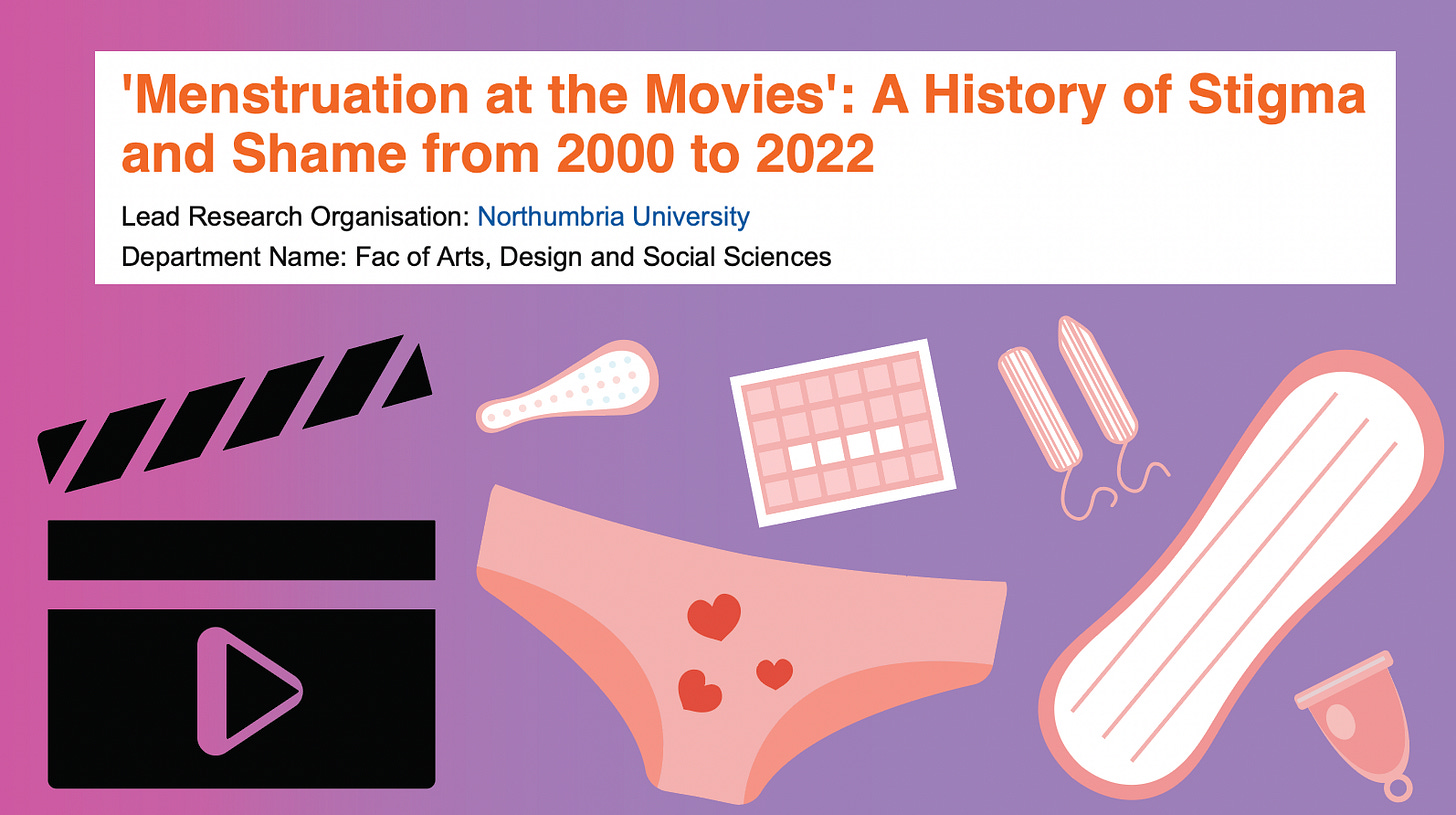'Menstruation at the Movies' - the PhD you've all been waiting for
Hurrah for another doctor in social sciences!
Periods. Don’t you just love em?
I sure hope so - because there seems to be no end of taxpayer funding for period-related projects. Gotta ensure diversity for people who bleed, right?
There’s the University of Oxford Chemistry Department’s podcast about periods, Periodically (get it?!)…
It was so popular that a second series was commissioned!
Periods for Palestine! 🍉
Please consider a paid subscription if you would like to support my Substack features and investigations. I like to keep as many posts free as possible to grow public awareness, but I am increasingly reliant on paid subscriptions as I have cut down on other freelance work. Such is the scale of Woke Waste, it has become something of an around-the-clock j…
There’s also Blood Show, which isn’t about periods, per se, but deeply evocative.
"Blood Show" - “a trans celebration of destroying things” at Battersea Arts Centre
Fancy a show about blood?
Believe it or not, there’s a fair bit more to come… But for today, I’m sure you will be thrilled to know the taxpayer is funding the PhD ‘Menstruation at the Movies': A History of Stigma and Shame from 2000 to 2022.
It takes place at the University of Northumbria, one of the country’s most outstanding institutions - renowned for its work on Trans embodiment and combat sports: Queer subversion, intimate violence and haptic encounters at the edge of legibility…
… and “glitching cisgenderism”:
"Trans Performance Now: Glitching cisgenderism" - £185,627 from the taxpayer
Today I will explain how you, dear taxpayer, are funding a research project titled: Trans Performance Now: Glitching cisgenderism.
Menstruation at the Movies is yet another complex area for Northumbria, hence needing just over three years to be investigated. As its researcher explains:
This project will examine contemporary cinematic representations of menstruation, using focused case studies of Hollywood cinema released from 2000 to 2022, to consider how film helps and hinders the de-stigmatisation of menstruation within society and popular culture. The research will employ a mixed methodology that combines theories from history and gender, film and cultural studies and draws on textual analysis, marketing and critical reception analysis and audience research. Due to a wave of work within film studies that has challenged the previous dominance of psychoanalytical frameworks within the discipline (Peirse, 2020), the analysis of menstrual representation in film has been under-explored for over a decade, but issues regarding the reproductive body have never been far from political and cultural debate, particularly regarding period poverty.”
And who can disagree with that?
PhDs (classed as studentships) tend to last 3.5 years and cost around £20kpa. Here’s some info below from UKRI’s website, which shows direct payments to host institutions too:
You have to wonder what films will be analysed in this thought-provoking project. Particularly now we know that men can bleed too.
Well, you’ll just have to find out in 2027 - when the UK will be blessed with another doctor in the social sciences.







